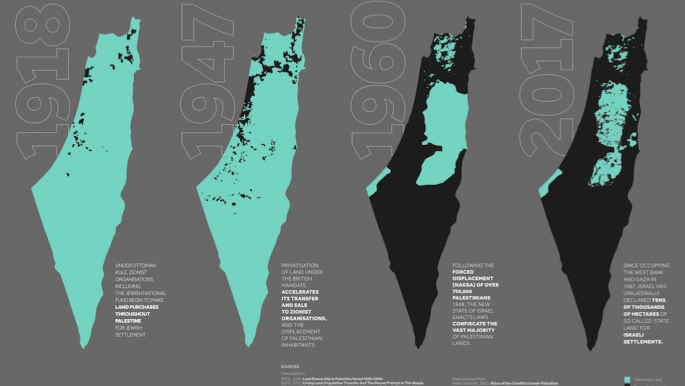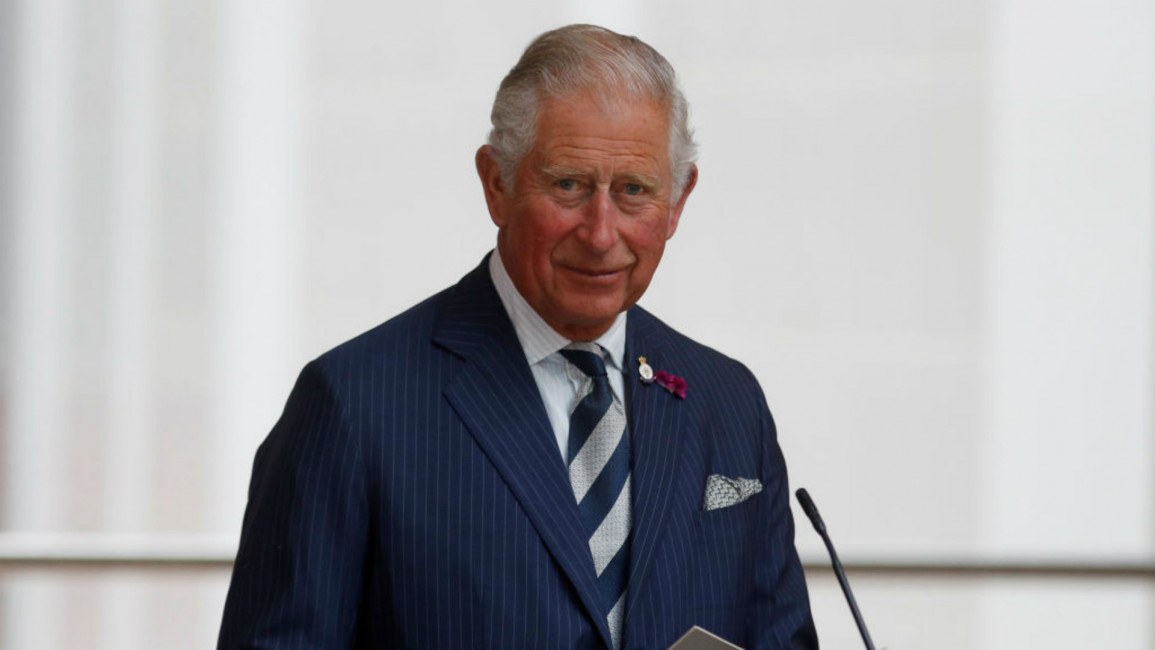
What Prince Charles won't see when he visits Israel
As yet, his mother, the British monarch has not made any visit at all during the entire 67 years of her reign, and at 93 is unlikely ever to do so. The line has always been that such visits would only occur when a permanent peace had been agreed. The visit of Prince Charles is a sombre acknowledgement that this any such deal is a very remote far off possibility.
The real breach in royal family visits occurred in June 2018. Prince William, Charles' eldest son and second-in-line to the throne, made a similar visit to the one now planned for his father, the first one by a senior royal.
Prince Charles had previously visited Jerusalem twice; in 2016 to attend the funeral of President Shimon Peres, and in 1995 to attend the funeral of Prime Minister Yitzhak Rabin. These were not deemed official visits.
The Israeli leg of the trip sees Prince Charles attending the World Holocaust Forum, at the invitation of President Reuven Rivlin. This is all to commemorate the 75th anniversary of the liberation of Auschwitz-Birkenau, the Nazi concentration camp.
Israelis will welcome this as a sign that the royal family's unofficial boycott of Israel, as they see it, is truly over. It will be seen as further legitimisation of Israel and a counter to the Boycott, Divestments, Sanctions campaign. It might ease some of the suspicions about the family rooted in the close associations of key members with the Nazis.
 |
Israelis will welcome this as a sign that the royal family's unofficial boycott of Israel, as they see it, is truly over |  |
Prince Philip, the Duke of Edinburgh, had four elder sisters, three of whom married German princes. Three of them were known to be Nazi Party members. King Edward VIII was also known to have strong Nazi sympathies. Against that, Philip's mother, Princess Alice sheltered a Jewish family during the war and was buried in the Church of Mary Magdalene on the Mount of Olives. For this, she is recognised as "Righteous Among the Nations" by Israel's Holocaust memorial institution, Yad Vashem.
The timing could be somewhat awkward but then again, if the protocol gurus that manage such tours are waiting for the opportune moment in this area of the world, it could be another five decades before any visit. The Israeli government is in paralysis, facing its third election in less than 12 months on 2 March. Prime Minister, Benjamin Netanyahu is of course facing indictment on charges of bribery, fraud and breach of trust, hardly someone that the Prince of Wales will be wanting to spend too much time with.
 |
|
| [Click to enlarge] |
Charles will also be visiting the occupied Palestinian territories and Bethlehem at the invitation of President Abbas. Gaza is not on the agenda given it is ruled by Hamas. He will visit the Church of the Nativity in Manger Square and according to officials, will have a field visit in the area.
How this will pan out will be intriguing. Will the 71-year-old be given a first-class tour of the wonders of the Israeli occupation? There is plenty to pick from. He could hardly miss the 30 feet high wall that encases Bethlehem, cutting it off from its historic fields and olive groves.
Maybe he will be given a tour of Banksy's Walled Off Hotel, that sits in the shadow of this monstrosity and tour its museum inside. One doubts he will stay the night in one of its unique suites, not least as the hotel is in the sights of a nearby Israeli watchtower.
Could he visit one of the many communities threatened by demolition such as at Khan Al Ahmar to the east of Jerusalem?
 |
He could hardly miss the 30 feet high wall that encases Bethlehem, cutting it off from its historic fields and olive groves |  |
This would infuriate the Israeli authorities although one has to ask why British officials should pay attention to that, given a crime against humanity is being planned. Perhaps Charles could express solidarity with Palestinian refugees. Bethlehem hosts three UN refugee camps, with Palestine refugees who have languished there ever since the start of the Nakba in 1947.
Also hard to miss would be the necklace of 42 illegal Israeli settlements that encircle Bethlehem, Beit Jala and Beit Suhour, all built over the last five decades of occupation. To the west is the largest settlement in the entire West Bank, Beitar Illit. Charles could make his own assessment as to whether the Israeli government - itself packed with settlers - has any intention of withdrawing them to allow a viable Palestinians state.
Such visits are the stuff of nightmares for diplomats. The Duke of Cambridge's tour will be seen as a successful blueprint but still, where Israel-Palestine is concerned every word and gesture has to be carefully calibrated and tested.
Read more: Israel's Netanyahu slammed after asking parliament for immunity from corruption charges
Prince William visited the Wailing Wall in Jerusalem, but in a private capacity without Israeli officials in case this was seen to legitimise Israeli claims. William made no public comments about the charged politics of the situation, save to express hope for peace in the Holy Land. Charles may follow the same line but does have a record of speaking out when his passions are aroused.
The reality is that this is all about promoting Britain and its soft power. The photo-ops and the good will generated are expected to fuel future British-Israeli ties, perhaps a post-Brexit free trade agreement, whilst extending a fig leaf to the Palestinians that they will not be forgotten.
The latter part is a tough ask, as to visit the occupied territories, the colonisation of Palestinian land and their resources, and say nothing, is tantamount to tacit approval.
The Prince will be in the unenviable position of witnessing major violations of international law but being compelled to remain mute in front of injustice.
Chris Doyle is the director of CAABU (Council for Arab-British Understanding). He is a regular opinion writer and commentator on the Middle East and has organised and accompanied numerous British Parliamentary delegations to the region.
Follow him on Twitter: @Doylech
Opinions expressed in this article remain those of the author and do not necessarily represent those of The New Arab, its editorial board or staff.


![President Pezeshkian has denounced Israel's attacks on Lebanon [Getty]](/sites/default/files/styles/image_684x385/public/2173482924.jpeg?h=a5f2f23a&itok=q3evVtko)



 Follow the Middle East's top stories in English at The New Arab on Google News
Follow the Middle East's top stories in English at The New Arab on Google News


